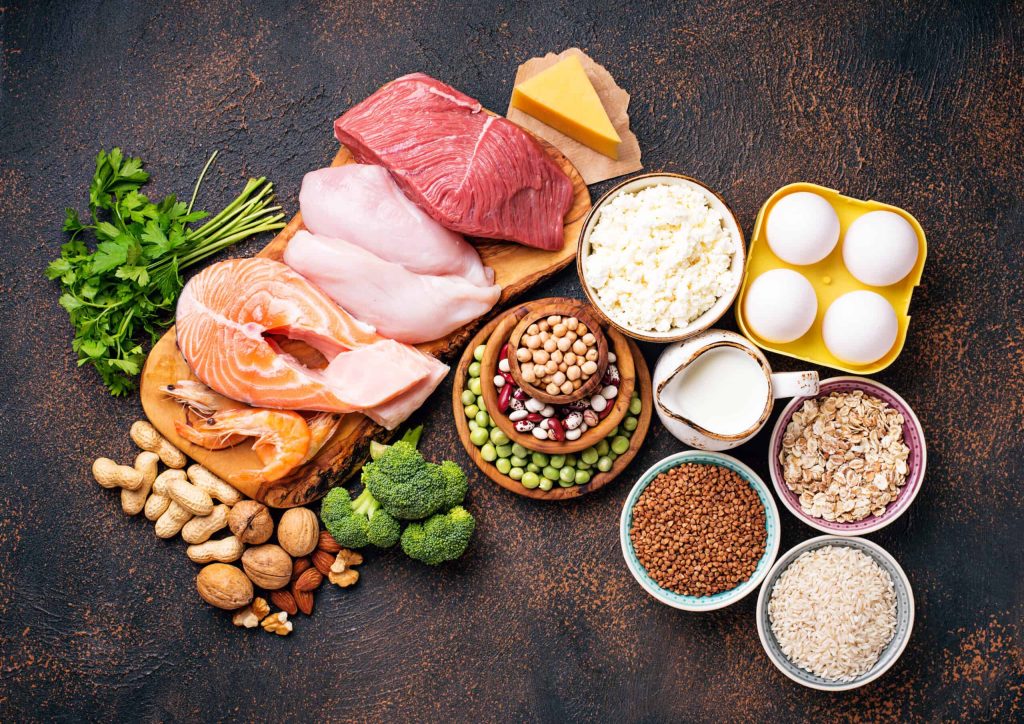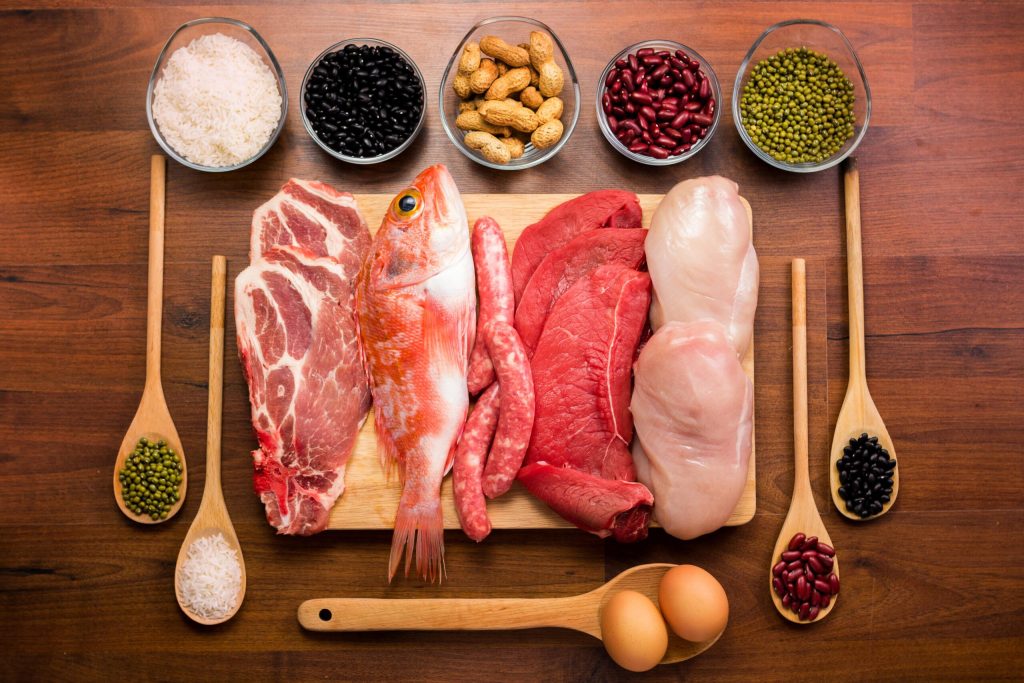
Image from: https://www.jefit.com/wp/nutrition-tips/5-foods-to-eat-for-accelerated-muscle-growth-2/
Introduction
Protein is often heralded as the king of macronutrients, crucial for everything from muscle building and tissue repair to immune function and hormone regulation. With its widespread use in fitness circles and popular diets, like keto or paleo, it’s no surprise that many of us are curious about how much protein we should be eating.
But here’s the question: How much protein do you actually need, and can you have too much?
What is Protein and Why Do You Need it?
Protein is made up of amino acids, which are the building blocks of the body. Unlike fats and carbohydrates, the body cannot store protein, so you need to get a regular supply through your diet. Protein plays a key role in:
- Building and repairing tissues (muscle, skin, hair, nails)
- Producing enzymes and hormones
- Supporting immune function
- Providing energy (in the absence of enough carbohydrates or fats)
The amount of protein required varies depending on factors such as age, activity level, and overall health.
How Much Protein Do You Need?
To put it simply, the general recommendation for protein intake varies by individual needs and is often based on body weight. According to the Mayo Clinic, a healthy adult should aim for 0.8 grams of protein per kilogram of body weight (about 0.36 grams per pound). For example, a person who weighs 150 pounds (68 kg) should consume approximately 54 grams of protein per day. This guideline is primarily for sedentary individuals. However, if you’re more active or are looking to increase muscle mass, your protein needs may be higher. Harvard Health suggests that people who engage in regular physical activity or strength training may need between 1.2 to 2.0 grams per kilogram of body weight, depending on the intensity of the activity.
Can You Have Too Much Protein?
While protein is essential, it is possible to consume too much. Overloading on protein, especially from animal sources, may stress the kidneys over time and increase the risk of dehydration, kidney stones, and even nutrient imbalances. WebMD notes that excess protein—beyond what your body can use—may be converted to fat or excreted through the urine, contributing to weight gain if not burned off by physical activity.
In fact, Harvard Health further elaborates that most adults can safely consume up to 2.5 grams of protein per kilogram of body weight without adverse effects. However, consistently going over this amount may not yield additional benefits for most people.
What Happens If You Don’t Get Enough Protein?
On the flip side, not getting enough protein can lead to a number of health problems. A protein deficiency can affect your muscles, immune system, and even your hair and skin health. If you consistently consume too little protein, it can lead to conditions like:
- Muscle wasting and weakness
- Increased risk of infection due to a weakened immune system
- Slower recovery from injury or surgery
For those who have a limited diet (such as vegetarians or vegans), it’s especially important to ensure a sufficient intake of plant-based proteins such as beans, lentils, tofu, and quinoa to meet daily needs.

Image from: https://www.stevegranthealth.com/articles-posts/why-is-protein-important-for-weight-loss/
Sources of Protein
Protein comes in many forms, both animal and plant-based. Animal sources, such as chicken, fish, eggs, and dairy, are complete proteins, meaning they contain all nine essential amino acids that the body cannot make on its own. For those following a vegetarian or vegan diet, plant-based proteins like legumes, nuts, seeds, and soy products can also provide a full range of amino acids when combined properly.
It’s worth noting that the type of protein you consume matters. The British Heart Foundation emphasises the importance of choosing lean protein sources, such as fish and poultry, and reducing your intake of red and processed meats to help maintain heart health.
Tailoring Protein to Your Lifestyle
Your protein needs are deeply personal and will differ depending on your lifestyle, activity level, and health goals. Here’s a simple breakdown:
- Sedentary Adults: 0.8 grams per kilogram of body weight (roughly 0.36 grams per pound).
- Active Adults: 1.2 – 1.8 grams per kilogram of body weight, particularly if you’re building muscle or engaged in endurance activities.
- Older Adults: Protein needs may increase with age to help preserve muscle mass and bone density, with some experts recommending 1.2 grams per kilogram of body weight.
- Pregnant and Breastfeeding Women: These individuals may also need more protein to support the growth and development of the baby.
Ultimately, whether you’re a casual exerciser, a bodybuilder, or just maintaining general health, your daily protein intake should align with your goals and needs.
Conclusion
Protein is essential for good health, but as with anything in nutrition, balance is key. The general recommendation for adults is 0.8 grams per kilogram of body weight but may need to be adjusted depending on individual factors like physical activity, age, and specific health needs.
If you’re unsure about how much protein is right for you, it’s always a good idea to consult with a healthcare provider or dietitian to help you determine your optimal intake.
Best Health Clinic Near Me
Our Clinic located in Baulkham Hills offers a wide range of practices such as group classes, sports physiotherapy, acupuncture, chiropractic appointments, massage therapy, rehabilitation appointments and podiatry to help each and every one of our patients with their individual and unique needs. Give our Sydney Hills District Clinic a call on 02 9639 7337 or book online to create an appointment with our expert sport and exercise Baulkham Hills Chiropractor and massage therapists.

References:
- Mayo Clinic Health System – How much protein do you need?
- Harvard Health Blog – How much protein do you need every day?
- Harvard Health – How much protein is too much?
- Healthline – How much protein per day
- WebMD – Protein
- British Heart Foundation – Protein
- Cleveland Clinic – How much protein you need (https://health.clevelandclinic.org/how-much-protein-you-need)


